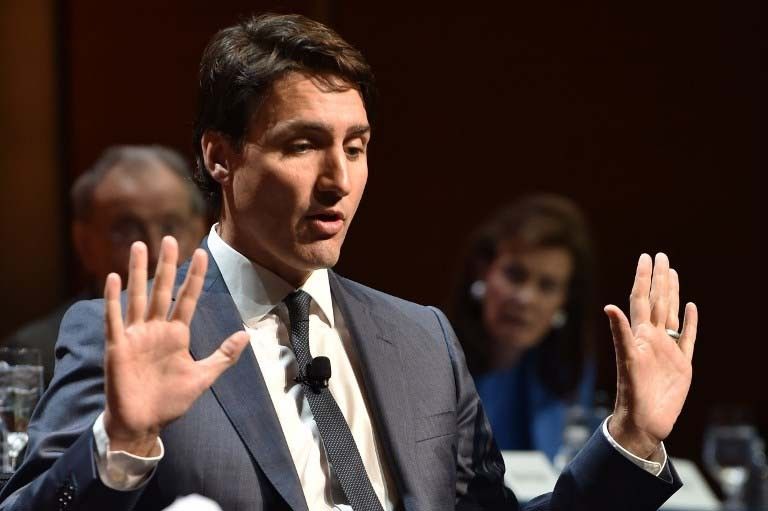No more Mr. Nice Guy: Canada's Trudeau gets tough

OTTAWA, Canada — Canadian Prime Minister Justin Trudeau, who has a reputation for playing it safe on burning political issues, showed a new level of grit in the face of two crises, and it may help him win re-election in 2019.
On Thursday, Trudeau hit back at punishing US tariffs on steel and aluminum with Can$16.6 billion (US$12.8 billion) in duties on US goods, and accused American President Donald Trump of lacking "common sense."
His actions and words were in stark contrast to the charm offensive he launched after Trump's inauguration in 2016.
The amateur pugilist traded in his "sunny ways" for fighting words. He also launched the largest trade action that Canada has taken in eight decades.
Canadians, industry and even opposition parties applauded the prime minister's unusually pointed rebuke of Trump and retaliatory tariffs.
"Trudeau uttered some of the harshest words a prime minister has directed at an American administration in decades," said Toronto Star columnist Chantal Hebert, calling this a "watershed moment in the Donald Trump-era Canada/US relationship."
"It is not every day that a Canadian head of government pointedly notes that he is dealing with a US administration that is short on common sense" or "that a prime minister uses a news conference to dig in his heels in a trade negotiation," she noted.
Two days earlier the prime minister stuck his neck out to save an oil pipeline project, likely alienating environmentalists but picking up broader support with his defense of the energy sector.
University of Ottawa professor Patrick Leblond said in an interview with AFP that Trudeau's newfound swagger "will help the Liberals in the next election."
"I think people understand that this (trade row) is not the Liberals' fault in any way," he said.
"I think the Canadian government did as much as they could to avert this outcome, they've tried engagement and continue to do so. It's Donald Trump's failure to understand the implications for the US and world economy of his isolationist policies."
- Punching back -
If the Canadian economy tanks as a result of a trade row, however, that may change. "We know that the incumbent party suffers (at the ballot box) when the economy is bad," Leblond said.
Since 2016, Canada and the United States have sparred over softwood lumber and aircrafts, while also endeavoring to negotiate, along with Mexico, a revamp of the North American Free Trade Agreement (NAFTA).
Washington had granted Canada and Mexico an exemption on the metals tariffs to give the parties time to successfully renegotiate the 1994 continental trade pact.
But those talks are now bogged down.
On Thursday, the US announced tariffs of 25 percent on steel and 10 percent on aluminum from Canada and others, from Friday.
Canada responded with duties of 25 percent on US steel and aluminum, and 10 percent on consumer goods such as ketchup, orange juice, sailboats and washing machines, which will take effect July 1.
"The government of Canada is confident that shared values, geography and common interests will ultimately overcome protectionism," Trudeau told a news conference on Thursday.
"We have to believe that at some point common sense will prevail, but we see no sign of that in this action today by the US administration."
He said Ottawa would try to convince Washington to repeal the tariffs, but the Trump administration has so far stood firm.
In a Twitter message, the American president lashed out at Canada for treating US farmers "very poorly for a very long period of time."
"If President Trump thinks this move will give him leverage in the NAFTA negotiations, I think Canada's response shows he's wrong," Leblond opined.
"Canada has negotiated in good faith, but at some point if you punch us in the face, we'll punch back," he said.
In the end, "this fight is not going to be resolved through diplomacy or at the G7 next week; it's going to be political developments in the United States," he added, noting that Canadian tariffs on US consumer goods aimed to sway voters in key districts in the upcoming US mid-term elections.
- Latest
- Trending
































